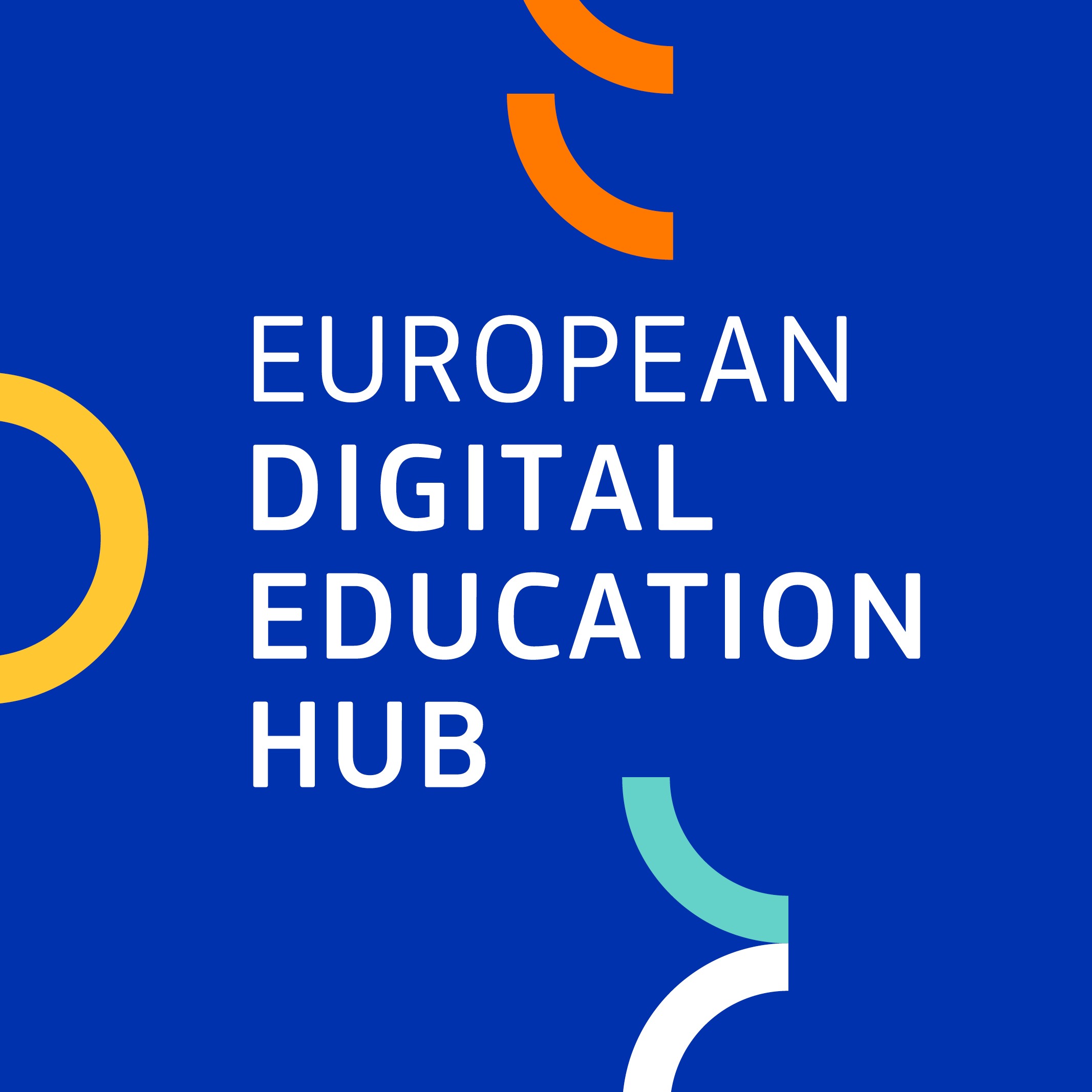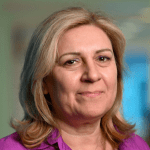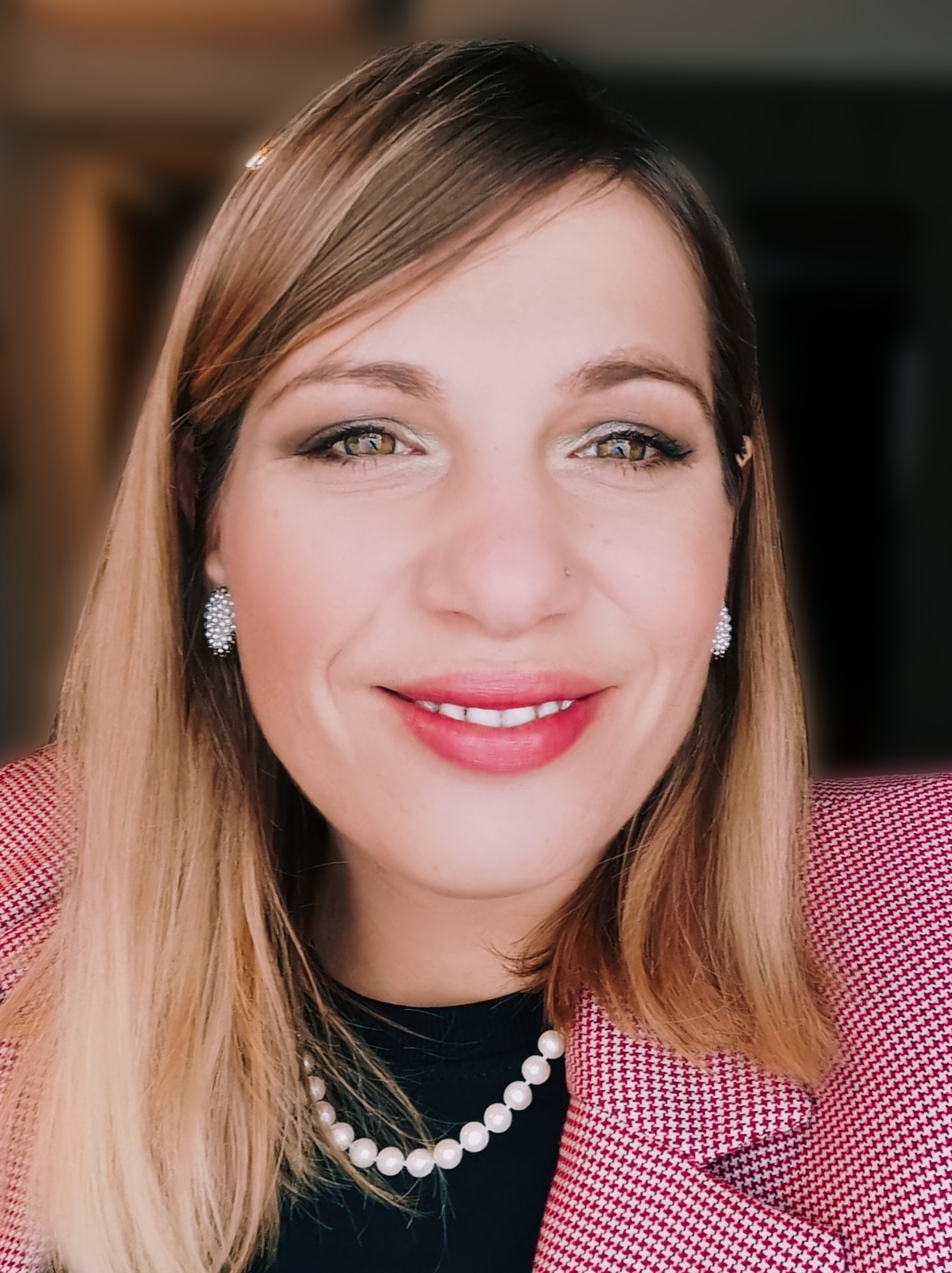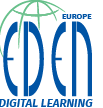
Knowledge Building Event – “How to Support Your Learners’ Wellbeing in Digital Education?”, Wednesday September 11 at 14:00 (CET)
Description
The aim of the event is to discuss the issue of well-being in a digital learning environment with the education community, share experience and know-how, raise awareness about the importance of well-being, and explore what can be done to improve and enhance students’ well-being in digital learning.
European Digital Education Hub
The European Digital Education Hub (EDEH) is an initiative of the European Commission, funded by the Erasmus+ programme (2021-2027) and operated by a consortium of eleven organisations, under a service contract with the European Education and Culture Executive Agency (EACEA).
EDEN Digital Learning Europe Knowledge Building team is actively contributing to this Hub.
Monthly innovative events are organised to discover and debate which are the current and future challenges of the digital transformation of education.
Speakers

Sandra Kučina Softić, Vice-president of EDEN Digital Learning Europe, Assistant Director at the University of Zagreb University Computing Centre (Croatia) and Head of the E-learning Centre. She has 25 years of experience working in higher education. Her work is focused on monitoring and fostering e-learning in Croatian higher education and providing support and advice to institutions, teachers and students in implementing new technologies in learning and teaching. She has 25 years of experience working in higher education. She has a master’s degree in Digital Education at the University of Edinburgh, UK and a PhD in Information and Communication Technologies at the University of Zagreb (Croatia). In 2021, she authored a book on digital transformation in higher education (published in Croatian. She is a professor at the University of Mostar, Bosnia and Herzegovina and DOBA University, Slovenia. She was EDEN president 2019- 2022. Since 2023 she has been EDEN DLE Vice-President for Open Professional Collaboration.

Dr Leigh-Anne Perryman is Associate Director (Curriculum) at The Open University’s Institute of Educational Technology (IET), where she has overall responsibility for the academic development, delivery and evaluation of IET’s curriculum, which supports educators across all sectors in delivering and evaluating technologyenhanced, blended and online teaching and learning. Leigh-Anne’s research interests include exploring how open educational practices and pedagogies can support equitable education, especially in the Global South. Leigh-Anne is particularly interested in how online education and technology-enhanced learning can both support and compromise mental health and well-being. She was Chair and a course author on the IET micro-credential Teacher development: embedding mental health in the curriculum and is currently exploring how online and blended teaching, learning and collaboration can help support learners and educators experiencing climate anxiety, part of Leigh-Anne’s broader focus on climate education research and curriculum development.

Miska Noponen is a programming pedagogue from Finland and the co-founder and CEO of Annie Advisor. Annie Advisor develops an early-intervention student support bot that prevents 27% of dropouts and improves student well-being. It’s currently in use in 35 schools and by more than 50,000 students in Europe, especially in secondary and tertiary education. The Annie support bot has been part of the European Digital Education Hub accelerator program since 2023. The Annie bot has won the Global Edtech Startup Award, Nordics and Baltics, the Edutech Startup Award and the Association of Finnish Municipalities Klash Competition. Miska holds degrees in both Adult Education (B.Sc., M.Ed.) and Computer Science (B.Sc., Data Science) from the University of Helsinki. Previously, he worked as an educational data scientist for schools and in the development of data-intensive learning tools, consulting e.g. the United Nations and many educational institutions. Miska is also a board member of the Edtech Finland association,

Lucija Vejmelka is an experienced researcher in the field of child protection and digital well-being, senior research associate, associate professor and editor-in-chief of the Ljetopis socijalnog rada (WOS and SCOPUS). Her research focuses on the areas of digital well-being, peer relations, problematic Internet use, alternative childcare, group work, communication skills, and qualitative methodology. Doctoral dissertation, Faculty of Law, University of Zagreb (2012) on the topic of violence among children in institutional placement of children. Foster carer supervisor (SIDA Sweden), attendee of the specialist postgraduate study in Family Mediation. Head of the lifelong education program for specialists Benefits and risks of modern technologies (4 ECTS). Commissioner for e-learning at the Faculty of Law, University of Zagreb. She is a permanent associate and expert advisor of the Safer Internet Centre Croatia: Making Internet a Good and Safe Place, a national project supported by the European Commission. She is a member of the working group for the preparation of the Initial Report of the Republic of Croatia according to the Optional Protocol to the Convention on the Rights of the Child on the sale of children, child prostitution and child pornography. Co-founder of FICE Croatia, the domestic branch of FICE International.
